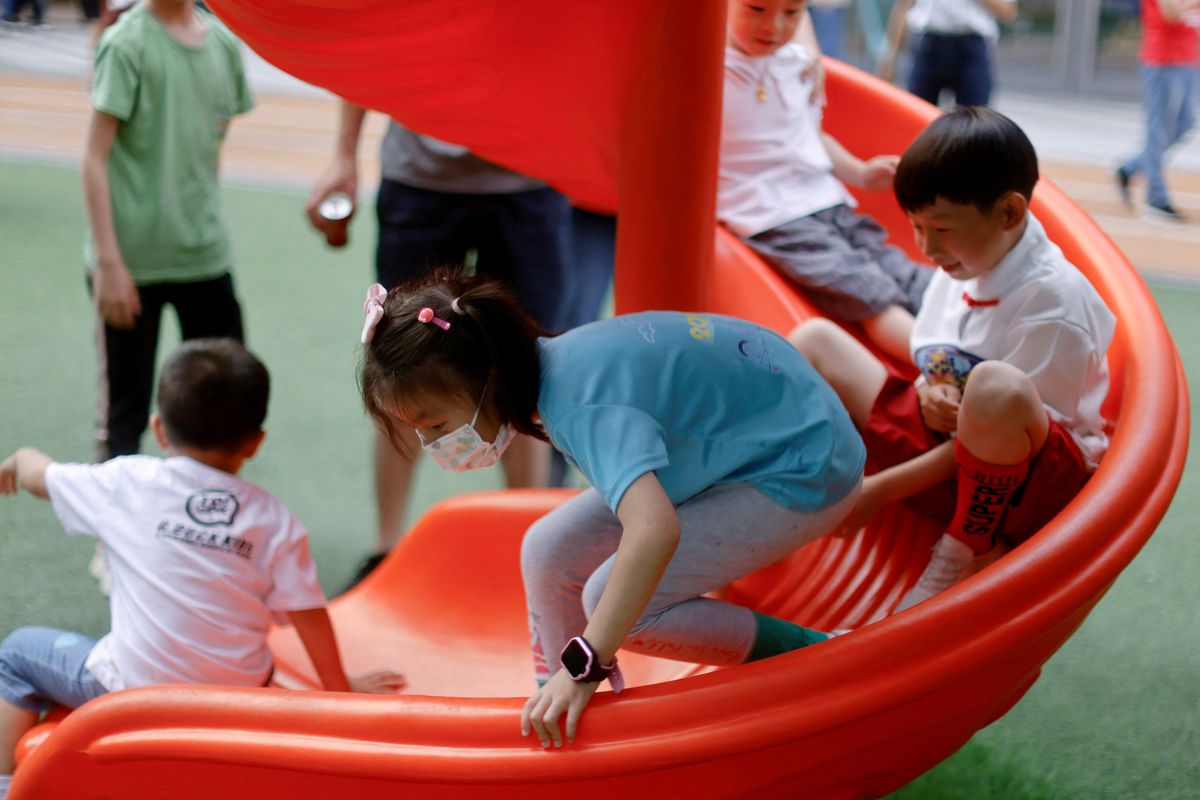Why is China's population decline causing concern?
China has been struggling with a low birth rate for some time now.

A few minutes every morning is all you need.
Stay up to date on the world's Headlines and Human Stories. It's fun, it's factual, it's fluff-free.
The backstory: China has been struggling with a low birth rate for some time now. In 2022, there were just 6.77 births per 1,000 people, the lowest on record. And in January of this year, the country reported its first population decline in 60 years, as there were more deaths than births. So, what's the deal?
More recently: China's one-child policy began in the late 1970s and lasted until 2015, limiting most families to having only one child. The policy has been blamed for the country's population decline. China increased the limit to two kids in 2016 and then to three in 2021, and now some officials are calling for "bold innovations" to offset the costs of childcare and education.
The development: A top health official in charge of China's Population Monitoring and Family Development department, Yang Wenzhuang, has urged local leaders to step up and help raise the birth rate. He believes that women worrying about money, their careers and the cost of childcare contribute to the lower rate.
On a positive note, some provinces in China are taking action by offering incentives to sperm donors and allowing unmarried couples to raise families with benefits.
So, what does this mean for China and the rest of the world? Well, a declining and rapidly aging population could seriously impact China's economy, which is the second-largest in the world. If fewer people are in the workforce than in the elderly community, it could strain resources. And a strained economy could affect global markets and trade as it snowballs.
Key comments:
"Local governments should be encouraged to actively explore and make bold innovations in reducing the cost of childbirth, childcare and education," said Yang Wenzhuang, a senior health official in Beijing, to a state magazine.
"China's shrinking labor force and manufacturing recession will lead to high prices and high inflation in the US and EU," said Yi Fuxian, a researcher at the University of Wisconsin-Madison and a longtime critic of China's one-child policy.
"The core issue is that there's only so much policy can accomplish in this realm, because declining birth rates are driven by deep structural factors," said Christopher Beddor, deputy China research director at Gavekal Dragonomics. "The leadership seems to have belatedly realized that those issues are very real and arriving very quickly."




Comments ()